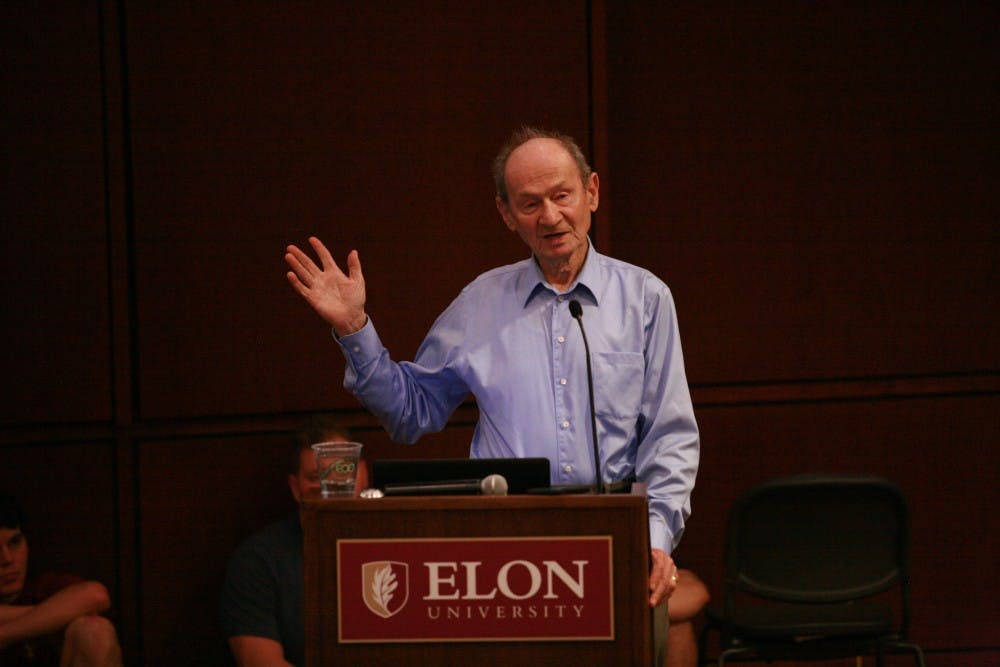Holocaust survivor and Professor Emeritus of Cleveland State University, Zev Harel gave a speech titled “Holocaust Remembrance” in the LaRose Digital Theatre at Elon University on May 3.
Harel is a survivor of the Auschwitz, Mauthausen, and Ebensee concentration camps. He was liberated by the Third Cavalry of the U.S. Army at the age of 15.
Before expanding on his personal experiences during the Holocaust, there were three “critical terms,” that he believed were the most important for the audience to understand.
Harel emphasized the need to remember during his speech. Remembering the World War II years, the Nazi’s and their allies, as well as all of the atrocities that they committed, were a constant theme throughout the speech.
“The World War II years are indicative of the worst of the human experience that history can tell you about,” Harel said.
He introduced the idea of honoring those involved in World War II by asking the audience for a moment of silence, which last several seconds. One group of people he wanted the audience to honor the most were veterans from World War II.
“Had it not been for World War II veterans, that took on, imagine what would this world be like, had the World War II veterans not taken on or fought against and brought about the ultimate defeat of the Nazis,” said Harel. “Try to think what would be this world like if the Nazis had been successful.”
Lastly, he spoke about the need to reflect on the events of World War II.
“Reflect on those days and the meaning of those days,” Harel said. “Reflect on where we are today and where you want us to be in the future.”
After emphasizing those three points, Harel spoke about his personal memories of the war. He spoke of his origins, family, elementary school, the 1940 restrictions, his deportation to a ghetto in 1944 and his cattle car ride to Auschwitz and his time at Holocaust.
When he was finally liberated, Harel spoke about how he “was so excited when the US Army liberated the camp.”
Post-liberation, Harel spoke about the difficulties of adjusting to life after the war.
“When people would ask me how I managed, I honestly do not know,” Harel said.
Harel spoke about how he was just another old man and how the future rested in the hands of the students in the audience.
“You are the future. The young men and women here, do all you can,” Harel said. “Do all you can to do those that depend on you."
The talk was arranged by Professor Andrea A. Sinn in connection with her History of the Holocaust course and generously supported and co-sponsored by the Department of History and Geography, Jewish Studies, Elon Hillel, German Studies, International Studies, the Elon Center for the Study of Religion, Culture, and Society, and the Dean of Elon College, the College of Arts and Sciences.
At the end of the evening, Dr. Sinn thanked Dr. Harel and presented him with a donation of $500 to the North Carolina Council on the Holocaust. Half of this amount was raised by Elon's chapter of Phi Alpha Theta, who contributed the earnings of this year's annual used book sale to honor and support the work of Holocaust remembrance and education.


